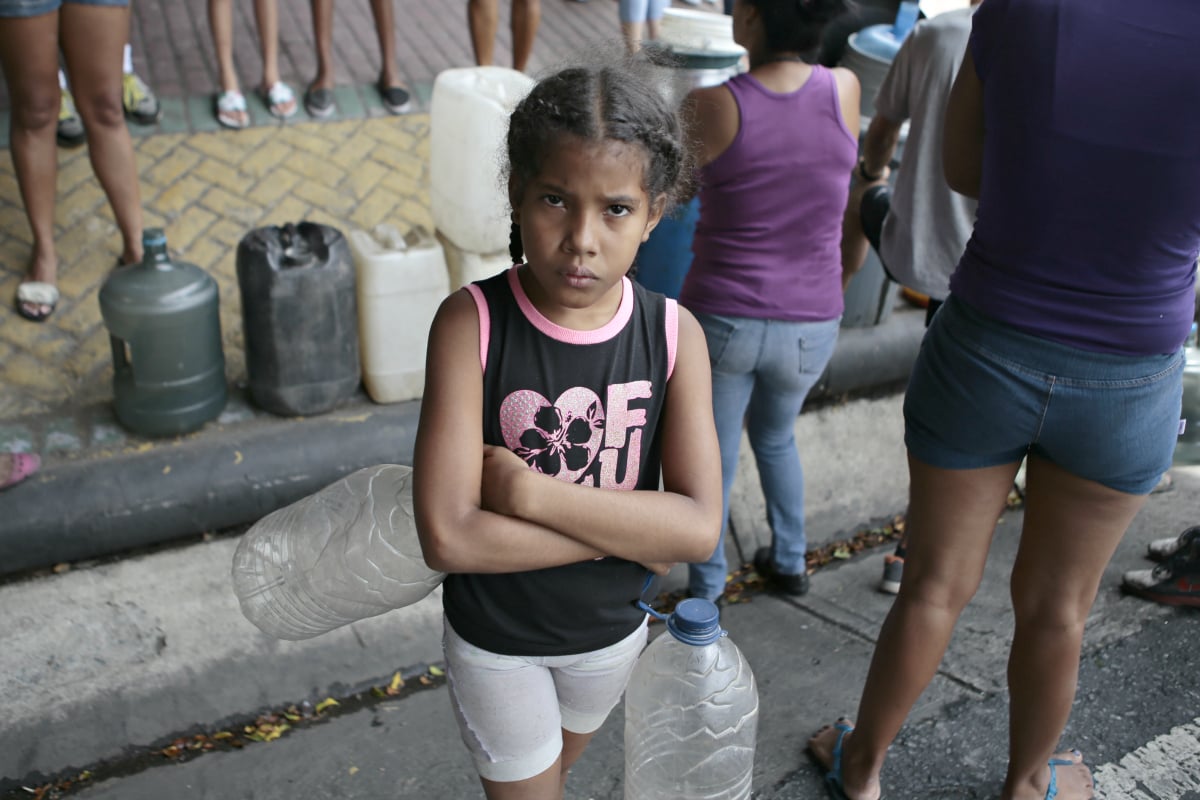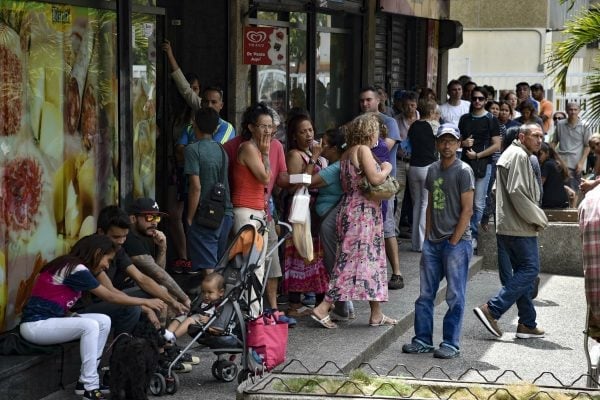
Venezuela has spent the last six days in darkness. A nationwide blackout has left already-scarce food to spoil, water pumps to stop working, schools to close and ailing hospitals unable to operate life-saving equipment.
According to media reports from the South American nation, at least 21 people, including six babies, have died as a direct result of the power outage, which is believed to stem from poor maintenance of the country’s main, state-run powerplant – a result of government corruption, the opposition says.
More recent reports suggest that number has climbed to more than 300, after 296 people, including 80 babies, died at the University Hospital of Maracaibo. With no electricity, and therefore no internet or mobile phones, there is a lack of information on the exact death toll.
Report that at least 80 neonatal patients have died at University Hospital in Maracaibo, Zulia, since the blackout began on Thursday in #Venezuela.
Unimaginable tragedy. Heartbreaking. https://t.co/1M6PCxyMdh
— Marco Rubio (@marcorubio) March 10, 2019


Top Comments
Thank you for having an article like this, among all the MAFS trash (as entertaining as it may be) innocent people are starving and don’t even have basic things to sustain their lives.
Venezuela was once a prosperous country like Australia, how times have changed.
It is a lesson for us to value what we have and pay attention to what is going on around us.
No mention of US sanctions and other destabalising actions? No mention of the significant gains made in liiteracy etc? No background history e.g Caracazo the Tianmen Square event of Sth America? No mention of Maduro being democratically elected as was Chavez?
No mention that Chavez squirrelled away billions of petro dollars into his own bank accounts, which his children inherited. No mention that Chavez nationalized private industry and then concentrated only on oil. The current crisis in Venezuela as terrible as it is, is not the USA's fault, but rests squarely upon the so called democratically elected governments in Venezuela.
Exactly
Well, I'm sure their 'significant gains made in literacy etc' are doing them a fat lot of good at the moment. They can only read and write during the day because there's no electricity to see anything at night. Their literacy skills won't get them a job because industry and the economy generally have virtually ground to a halt. However, the dying babies must be comforted by the fact that their parents are literate.
No mention of the fact that the Venezuelan leadership seized control of privately-owned oil processing plants and sent the owners packing, Bill? If you seize assets belonging to U.S. companies, Bill, don't be surprised if the U.S. sanctions you.
"May 1, 2007 JOSE, Venezuela (Reuters) - Venezuela stripped the world’s biggest oil companies of operational control over massive Orinoco Belt crude projects on Tuesday, sending in workers backed by troops to occupy the multi-billion-dollar installations.
"Rallying thousands of workers dressed in the signature red of his self-styled revolution, President Hugo Chavez hailed what he called the end of U.S.-prescribed policies that had opened up the largest oil reserves in the hemisphere to foreign investment.
“'Today, we are ending this perverse era,' Chavez shouted looking out from a platform over a sea of red hats, helmets and flags after the major step in his nationalization drive' . . .
"Behind him was a huge banner reading ''Full oil sovereignty. Road to socialism,” Russian-made fighter jets roared overhead and in front of him women pushed toward the stage screaming for him to blow kisses. He obliged.
"U.S. companies Exxon Mobil, ConocoPhillips and Chevron, Britain’s BP, Norway’s Statoil and France’s Total obeyed a February decree to transfer operational control of their projects developing the OPEC nation’s Orinoco crude reserve, one of the largest oil deposits outside the Middle East."
Look, Bill, it can be argued that Chavez had the right to seize whatever he wanted in his country, if the people backed him.
Fine.
And it can also be argued that when U.S. firms have their overseas assets seized, the U.S. has the right to stop doing business with the powers doing the seizing.
Also, fine.
What did Chavez think would happen when he ordered his soldiers to seize U.S. firms' assets in his country?
That the U.S. would just sit there and be fine with it?
Well, Mr. Chavez found out that wasn't going to happen.
If the current Venezuelan leadership would like to see U.S. sanctions lifted, then they can reach out and invite us to start talks.
We're always open to negotiation.